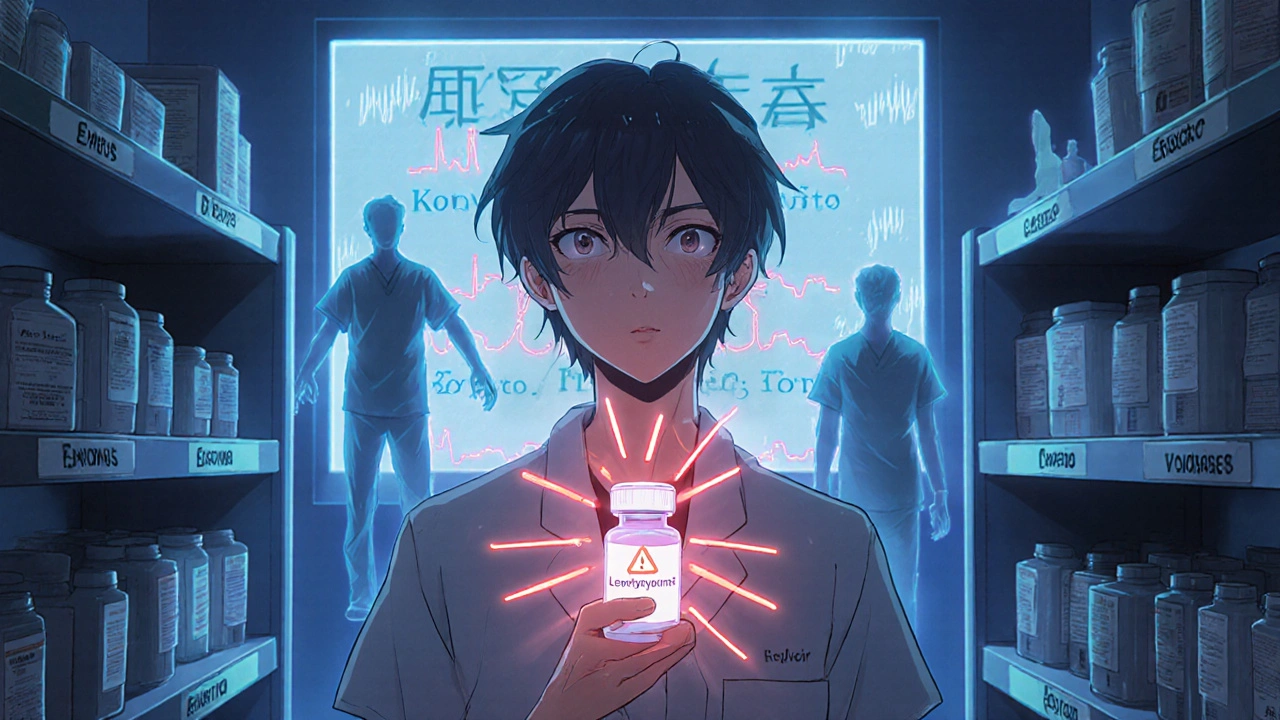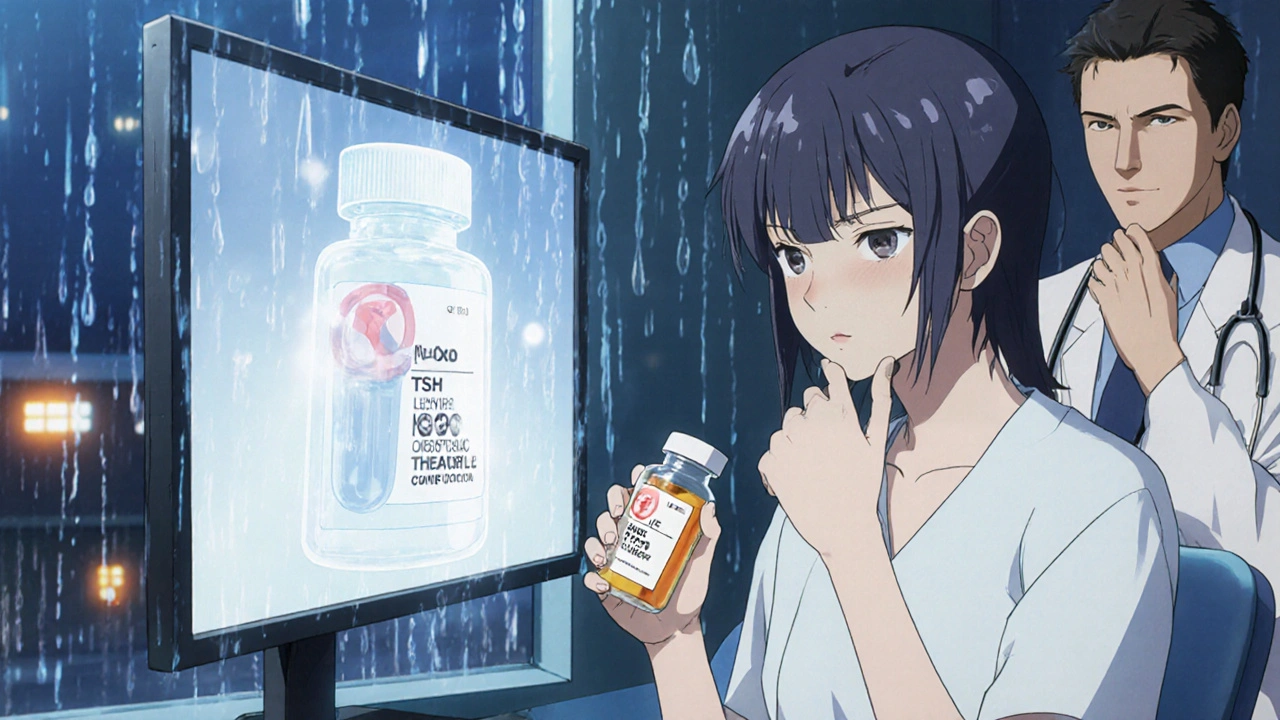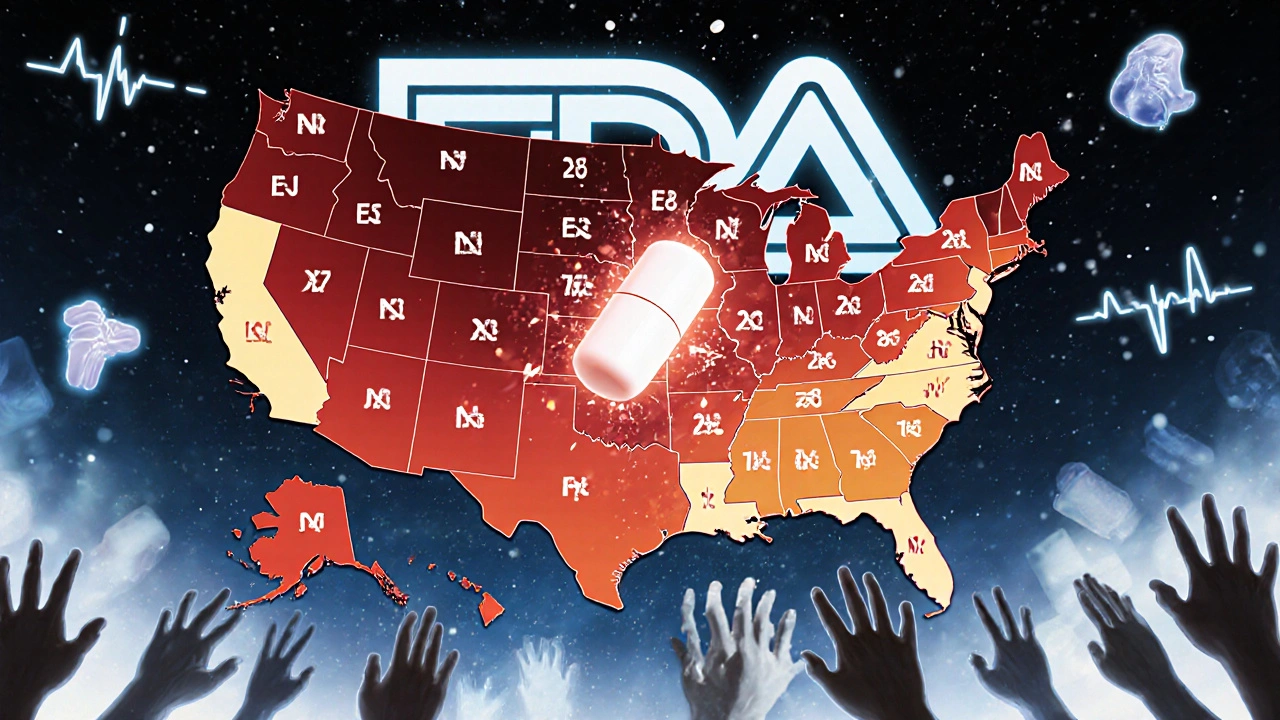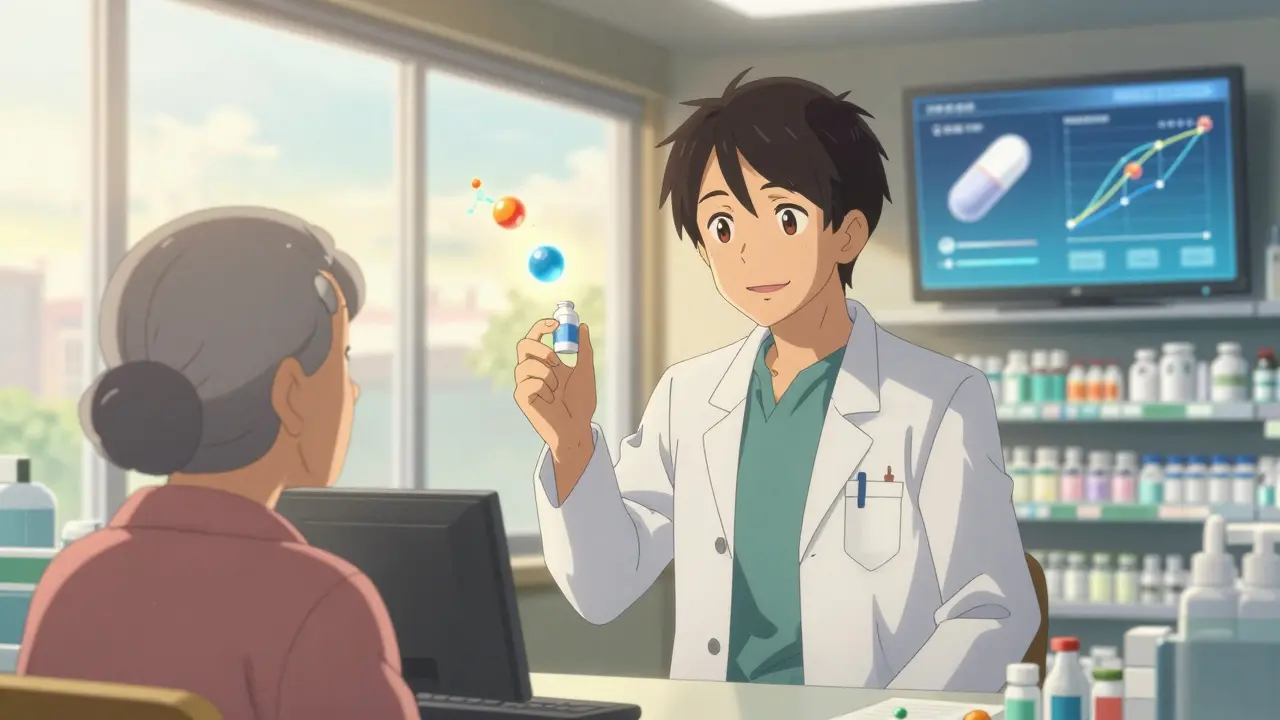State Laws on NTI Drug Substitution: How Rules Vary Across the U.S.

Why NTI Drugs Are Different
Not all medications are created equal when it comes to swapping one version for another. NTI drugs - narrow therapeutic index drugs - are the kind where even tiny changes in dose can lead to serious problems. A little too much, and you risk toxicity. A little too little, and the treatment fails. These are drugs like warfarin, lithium, levothyroxine, and certain seizure medications. They don’t leave much room for error. That’s why pharmacists, doctors, and patients need to be extra careful when switching from brand to generic or between generic versions.
The FDA doesn’t officially label drugs as NTI in its Orange Book, even though it’s been aware of the issue since the 1970s. It still says the current bioequivalence standards - allowing up to a 20% difference in how much of the drug gets into your bloodstream - are safe for everyone. But doctors and pharmacists on the ground know that for some patients, even a 5% change can throw off their entire treatment. That’s where state laws step in.
States That Say No to Substitution
As of 2025, 27 states have rules that limit or block pharmacists from automatically substituting generic versions of NTI drugs. These aren’t suggestions. They’re legal requirements.
Kentucky and Pennsylvania are two of the strictest. Both maintain official lists of drugs that can’t be switched without a doctor’s explicit order. In Kentucky, that includes digitalis glycosides, antiepileptics like phenytoin, and warfarin tablets. Pennsylvania’s list is nearly identical. If a pharmacist fills a prescription for brand-name Synthroid and the patient’s insurance pushes for a generic, the pharmacist can’t do it unless the prescriber checks a box saying substitution is allowed.
South Carolina takes a broader approach. It doesn’t just restrict NTI drugs - it also blocks substitution for insulin, certain asthma inhalers, and brand-name drugs like Premarin and Synthroid, even if they’re not officially classified as NTI. The state calls these "critical drugs" and treats them with the same caution.
Tennessee is different. It allows substitution of FDA-approved "A-rated" generics - but makes one hard rule: no substitutions for antiepileptic drugs if the patient has epilepsy or seizures. That’s not based on the drug’s label. It’s based on the patient’s diagnosis. The pharmacist has to ask.
States That Require Notice, Not Blockage
Some states don’t ban substitution outright. Instead, they require pharmacists to tell the prescriber before making the switch.
California’s law is one of the clearest examples. Under Business and Professions Code Section 4070.5, pharmacists must notify the doctor if they’re substituting any drug the state defines as a "critical dose drug." That means any medication where a 10% or less change in blood concentration could be dangerous. The doctor then decides whether to allow the switch or not. This puts the decision back in the hands of the person who knows the patient best.
Texas has a similar rule, but only for anticonvulsants in patients with epilepsy. The law says substitution is prohibited unless the prescriber gives written permission. It doesn’t matter if the generic is FDA-approved. The patient’s condition overrides the system.

What Happens When Pharmacists Get Confused
Imagine you work for a pharmacy chain that has locations in Tennessee, Kentucky, and Ohio. In one state, you can’t substitute warfarin. In another, you can - but you have to call the doctor. In the third, you can substitute freely unless the patient is over 65. That’s the reality for many pharmacists today.
A 2023 survey by the National Community Pharmacists Association found that 68% of pharmacists who work across state lines have been confused about NTI substitution rules. Over 40% admitted they accidentally broke the law in the past year - not because they were careless, but because the rules are inconsistent and poorly communicated.
One pharmacist in a multistate chain told a reporter she once filled a prescription for levothyroxine in Knoxville, Tennessee, using a generic. She didn’t know that in Chattanooga - just 120 miles away - the same drug required a prescriber’s note. The patient had no symptoms, but the pharmacist later found out the change caused a spike in TSH levels. The patient had to be retested and adjusted back to the original brand. It was avoidable.
The FDA’s Stance vs. Real-World Evidence
The FDA’s official position hasn’t changed since 1997: the 20% bioequivalence standard is enough. They argue that if a generic passes their tests, it’s safe to use interchangeably.
But clinical evidence tells a different story. A 2023 meta-analysis of 17 studies found that 32.4% of patients stabilized on brand-name levothyroxine saw their thyroid hormone levels shift after switching to a generic. Many needed dose adjustments within weeks. That’s not a fluke. It’s a pattern.
Dr. Jerry Avorn from Harvard Medical School put it bluntly: "The FDA’s 20% range is fine for antibiotics. It’s not fine for thyroid medication in an elderly patient with heart disease."
Meanwhile, the American College of Clinical Pharmacy supports state-level restrictions. They point to data showing states with NTI substitution bans had 18.7% fewer adverse events linked to warfarin - even if the absolute number of events was small. For a patient who’s been stable for years, even one bleed or clot can be life-changing.

Why This Matters for Patients
If you’re on warfarin, lithium, or levothyroxine, your medication isn’t just a pill. It’s part of a delicate balance. Switching brands without warning can throw off your lab results, your energy levels, your mood, or your heart rhythm. Some patients don’t notice anything - but others crash.
Patients don’t always know their drug is an NTI. Pharmacists aren’t always trained to recognize the risks. And prescribers often don’t realize their prescriptions are being swapped. That’s why the most important thing you can do is ask: "Is this the same drug I’ve been taking?" and "Has anything changed?"
If you’re on a stable dose of Synthroid or Coumadin, don’t assume the generic is safe just because it’s cheaper. Check the name on the bottle. If it’s different from what you’ve had before, speak up. Your doctor needs to know.
The Push for Standardization
The current patchwork of laws is unsustainable. Pharmacy benefit managers report that NTI restrictions increased their administrative costs by 5.7% in 2023. Pharmacies need to maintain multiple databases. Insurance systems have to flag certain drugs differently by state. It’s inefficient, expensive, and risky.
In January 2024, the National Association of Boards of Pharmacy introduced the Model State NTI Substitution Act. It proposes a single, evidence-based list of NTI drugs that all states could adopt. Twelve states have already introduced versions of this bill. If it passes, it could bring consistency to a system that’s been chaotic for decades.
Even the FDA is reconsidering its stance. In September 2024, after a Government Accountability Office report found nearly 3,000 adverse events linked to NTI substitutions between 2019 and 2023, the agency signaled it might finally acknowledge the need for special rules.
What’s Next?
By 2027, experts predict 38 states will have adopted standardized NTI substitution rules. That’s good news for patients and pharmacists alike. Fewer mistakes. Less confusion. More safety.
But until then, the system remains a maze. If you’re a patient, know your drugs. If you’re a pharmacist, double-check your state’s list. If you’re a prescriber, write "dispense as written" on the prescription if you’re unsure. And if you’re ever in doubt - ask. It’s better to be safe than sorry when your life depends on a pill that’s supposed to be exact.
What does NTI stand for in medication?
NTI stands for Narrow Therapeutic Index. It means the difference between a safe, effective dose and a harmful or ineffective one is very small. Even minor changes in how the drug is absorbed can lead to serious side effects or treatment failure. Examples include warfarin, lithium, levothyroxine, and certain seizure medications.
Can a pharmacist substitute a generic for an NTI drug?
It depends on the state. In 27 states, substitution is restricted or banned for certain NTI drugs. Some states require the prescriber to specifically allow substitution. Others require pharmacists to notify the doctor before switching. In states without restrictions, pharmacists can substitute FDA-approved generics unless the prescription says "dispense as written." Always check your state’s pharmacy board rules. If you’re unsure, ask the pharmacist to confirm whether the substitution is allowed.
Which drugs are commonly classified as NTI?
Common NTI drugs include:
- Levothyroxine (Synthroid, Tirosint)
- Warfarin (Coumadin, Jantoven)
- Lithium (Lithobid, Eskalith)
- Phenytoin (Dilantin)
- Carbamazepine (Tegretol)
- Valproic acid (Depakote)
- Digoxin (Lanoxin)
- Insulin (various formulations)
- Cyclosporine (Neoral, Sandimmune)
Why doesn’t the FDA recognize NTI drugs?
The FDA maintains that its current bioequivalence standards - allowing up to a 20% difference in drug absorption - are sufficient for all medications, including those with narrow therapeutic indexes. They argue that if a generic passes their testing, it’s safe to use interchangeably. However, critics point out that the 20% range is too wide for drugs where even a 5% change can cause clinical instability, especially in elderly or vulnerable patients.
What should I do if my NTI drug changes without warning?
If you notice your medication looks different or has a new name on the label, contact your pharmacist immediately. Ask whether it’s a generic substitution and whether it’s allowed under your state’s laws. If you’re on warfarin, levothyroxine, or a seizure drug, ask your doctor to check your blood levels. Even if you feel fine, lab tests can reveal subtle changes that could lead to problems later. Never assume a generic is safe just because it’s cheaper.

Scott Macfadyen
November 17, 2025 AT 23:10Chloe Sevigny
November 18, 2025 AT 05:29Denise Cauchon
November 19, 2025 AT 05:16Andrea Johnston
November 19, 2025 AT 09:56Victoria Malloy
November 21, 2025 AT 05:05Alex Czartoryski
November 21, 2025 AT 20:55Gizela Cardoso
November 21, 2025 AT 21:13Premanka Goswami
November 22, 2025 AT 21:54Alexis Paredes Gallego
November 23, 2025 AT 02:27Brandon Lowi
November 23, 2025 AT 06:48Joshua Casella
November 23, 2025 AT 18:21Richard Couron
November 25, 2025 AT 03:17Evan Brady
November 26, 2025 AT 03:45Ram tech
November 27, 2025 AT 03:47Jeff Hakojarvi
November 27, 2025 AT 12:45